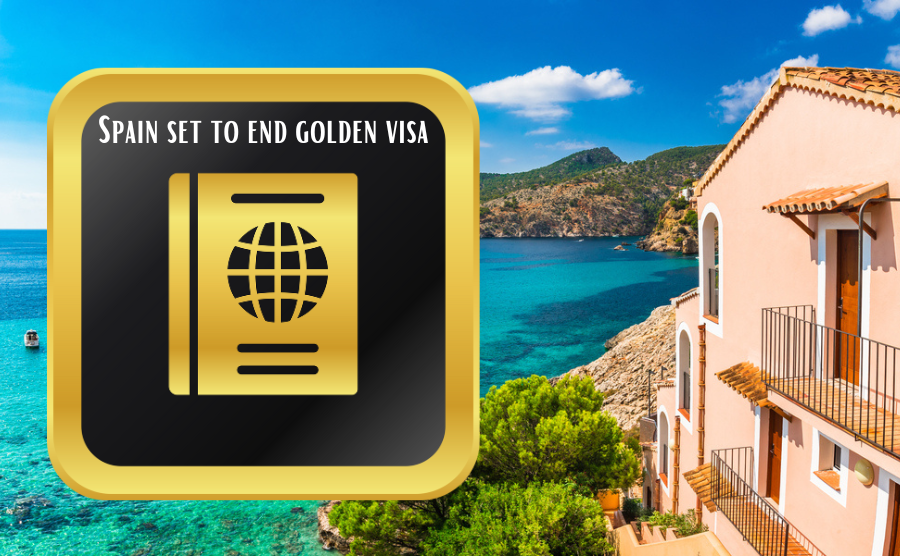On Monday, Spain’s prime minister Pedro Sánchez announced that the country’s popular golden visa scheme will be axed. Find out what this means for your property plans and alternative routes to take.
On April 8th, Spain’s prime minister Pedro Sánchez told reporters that he would be axing the country’s golden scheme to make affordable housing more accessible for Spaniards. On Tuesday, his cabinet agreed.
Introduced in 2013, the golden visa is a residency-by-investment scheme. While there are different methods to invest in the country, such as buying shares in a company or investing in a bank at least €1,000,000, the most popular method is via property. Currently, you must purchase a home worth at least €500,000 (or multiple units that add up to this amount) to be able to apply for a golden visa. President Sanchez said that 94 out of every 100 golden visas were linked to property. They are concentrated in the tourism hubs of Barcelona, Málaga, Alicante, Valencia, Madrid and Palma de Mallorca.
While most popular with Russian and Chinese buyers, since Brexit, the golden visa has become especially sought after by Brits as it enables visa-free travel in the Schengen Zone. It enables you to legally live, work and study in Spain. Plus, it has no minimum stay requirement. It can lead to permanent residency and/or citizenship.
Find homes in Spain via our property portal.
Why is the golden visa ending?
Golden visa schemes across Europe have been under pressure to change or end. In the last year, the Greek golden visa introduced a tiered system, whereby properties in the most sought-after areas by international buyers have a higher minimum spend requirement.
In Portugal, the property investment route was removed from the golden visa, though it is still possible to invest via funds.
Ireland also ended its golden visa.
What does this mean for your property plans?
As of yet, it’s unclear how or when exactly the golden visa will be axed. It might be that Spain follows Portugal’s example and just removes the investment through residency. Or it might be that it introduces a tiered minimum spend, like Greece. Or the Spain golden visa could end completely.
Alternative visas
On the other hand, you may want to pursue a different visa. Here are some popular choices with British expats:
Non-lucrative visa: If you plan to live but not work in Spain, then this is the one for you. Also referred to as the retirement visa, the initial visa lasts a year but can then be renewed every two. After five years, you can apply for permanent residency. To find out more about retiring to Spain, download our free guide.
Residency through marriage: If you are married to a Spanish person, or French, Irish or any other country within the EU, then you can gain residency in Spain as their spouse.
Digital nomad visa: If you work for a British-based company remotely, then why not do so from Spain? One of the newest visas, the digital nomad visa enables you to live and work in the country for up to twelve months and can then be renewed. Find out more about it here.
Please note that all of these visas come with different minimum income requirements. Plus, you will need to be over 18, have health insurance, and have a clean criminal record to apply.
If you are planning to spend less than 90 days out of every 180 in your Spanish home (or within the Schengen Area), then you will not need a visa.













